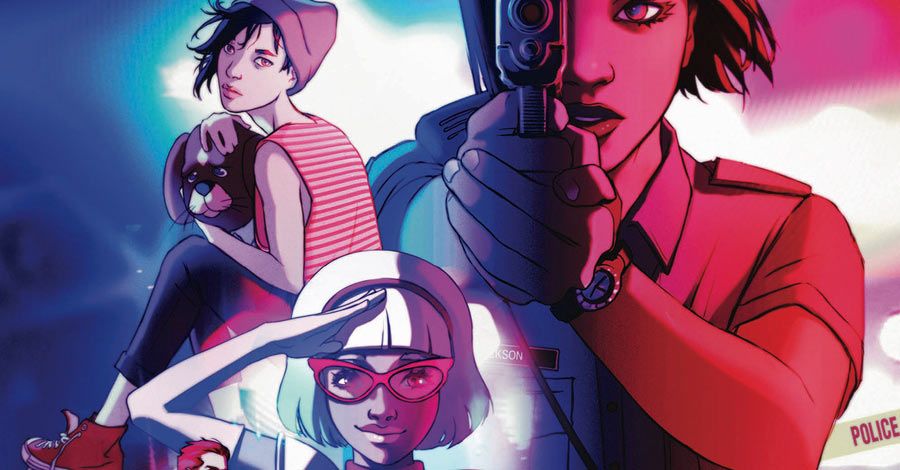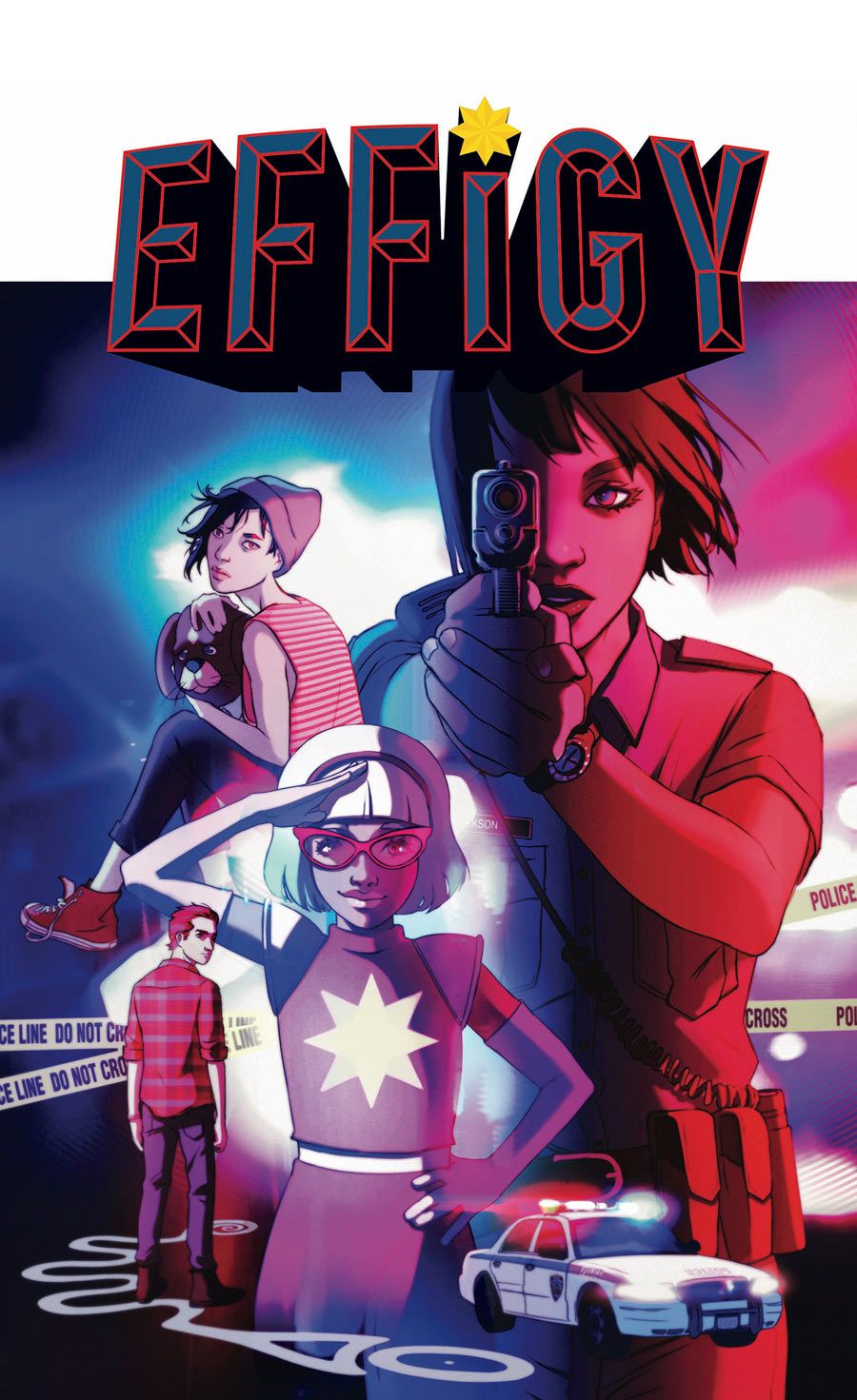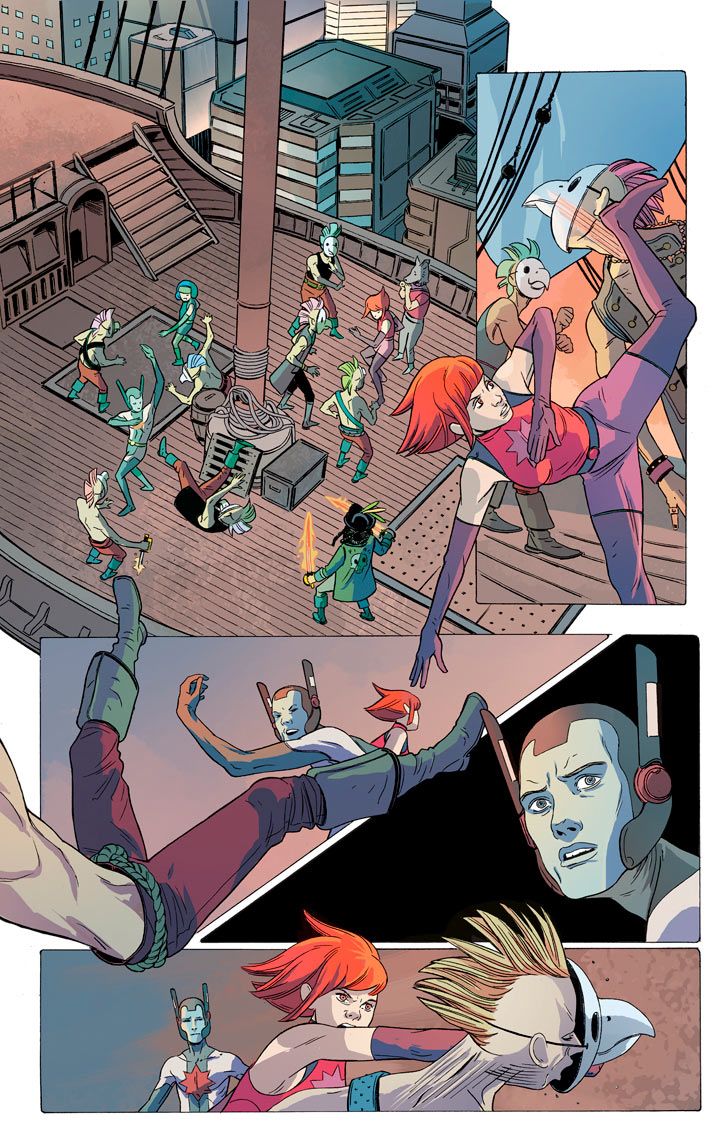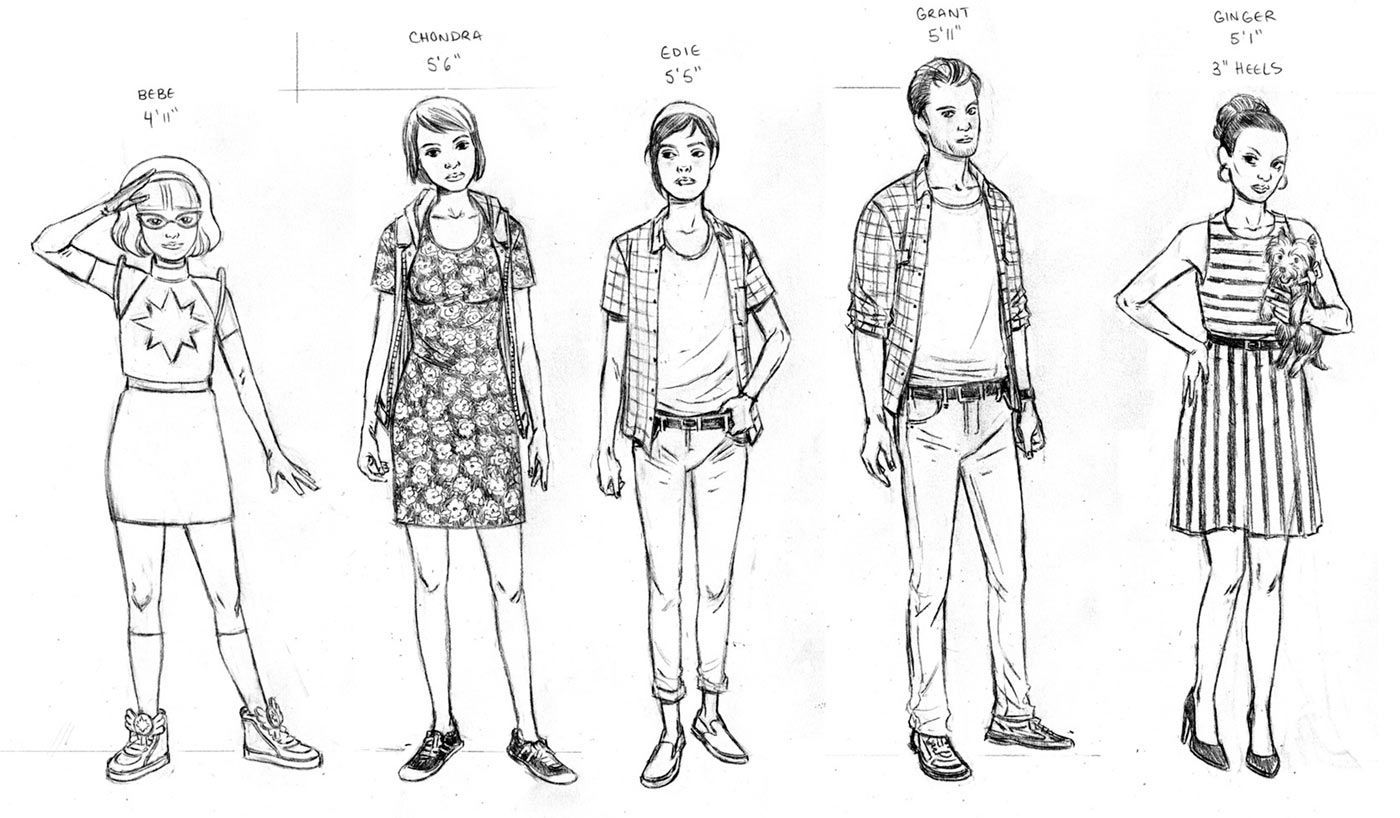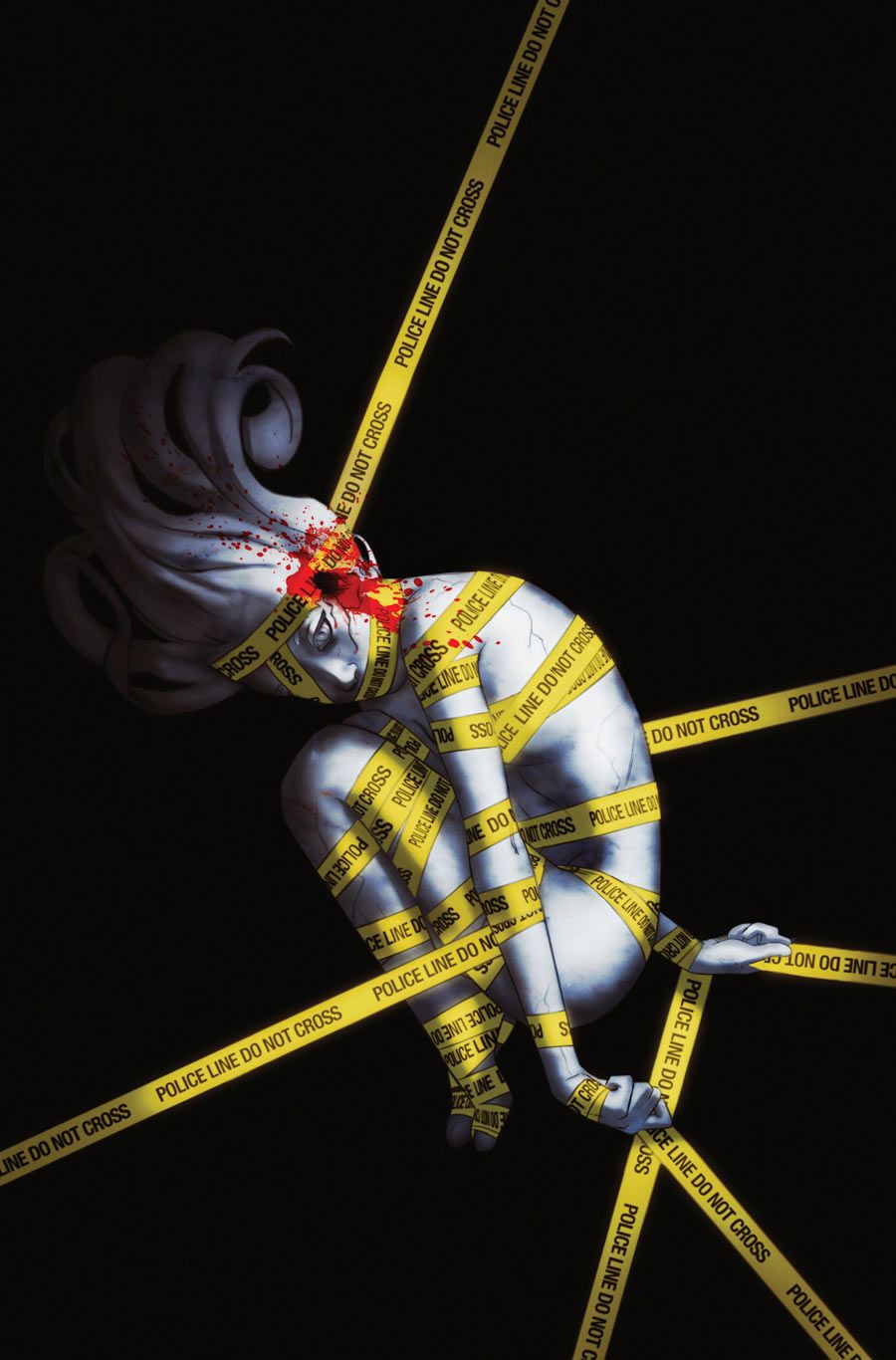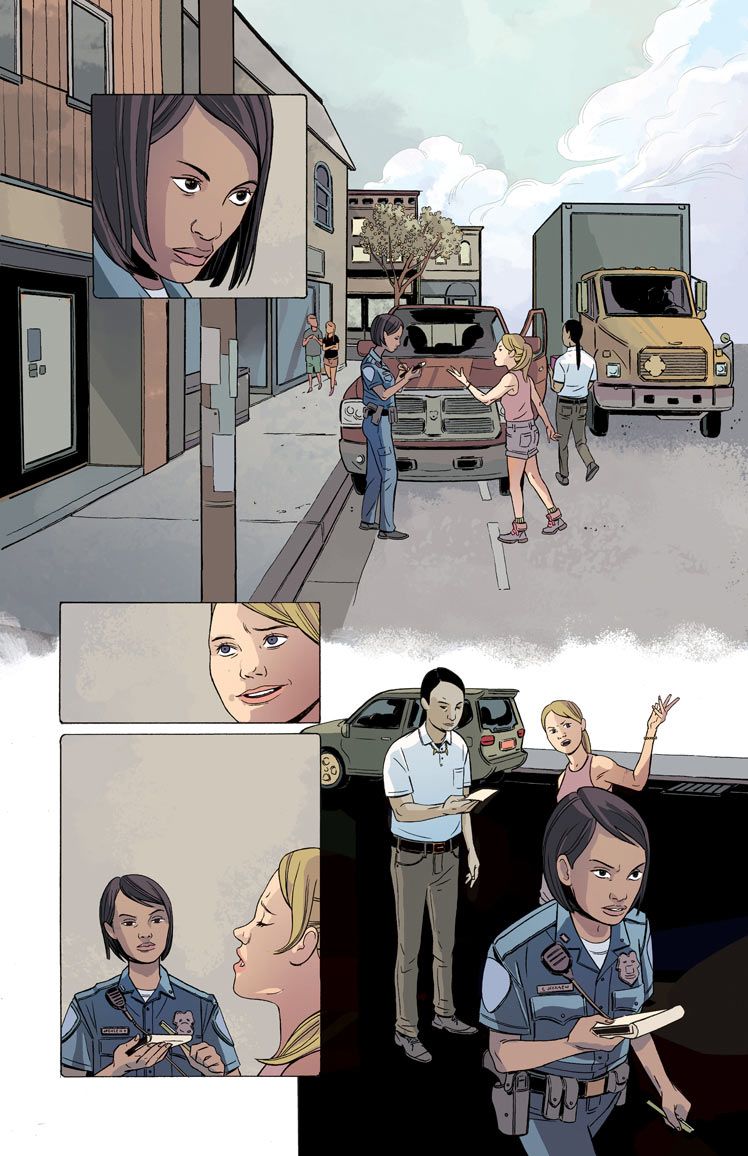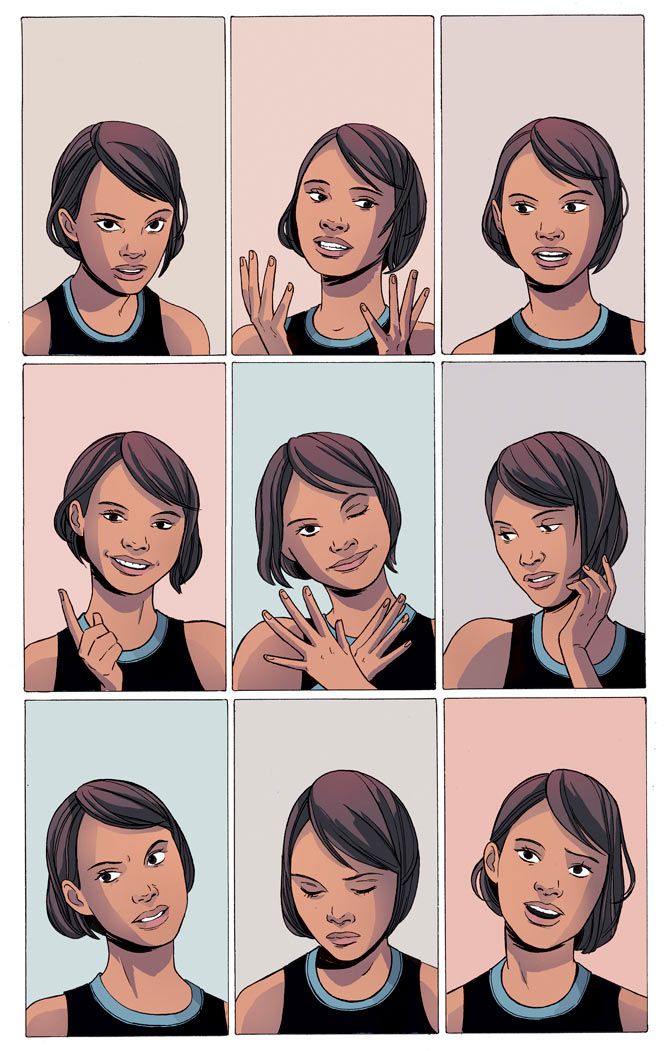As part of New York Comic Con's Vertigo: Defy Conventions panel, the DC Comics imprint is announcing that Tim Seeley, who is currently co-writing "Grayson" and Batman Eternal," will make his Vertigo debut in January 2015 with a new ongoing series titled "Effigy."
The series, illustrated by relative newcomer Marley Zarcone ("Madame Xanadu"), is about a former Hollywood child star-turned-Z-lister named Chondra Jackson who returns to her hometown of Effigy Mound, Illinois after a sex tape scandal. Troubled by her own personal life, she finds a seemingly impossible crime -- a fresh corpse in an ancient Indian burial site. Even weirder, the murder resembles a scene from an episode of the old TV show, "Star Cop," a live-action children's show about a kid detective, that she used to star in.
Chondra begins to investigate and stumbles upon a bizarre cult that worships celebrities as eternal effigies. And these cult members aren't just worshiping, they're also ritually sacrificing anyone who defies their veneration of the beautiful and famous. Chondra's probe takes her on a terrifying tour of burial sites across the world from Stonehenge to the Nazca Lines of Peru.
In his first interview about "Effigy," CBR News spoke exclusively with Seeley about his new Vertigo series.
CBR News: Did you grow up reading Vertigo books like "Sandman" and "Preacher," and if so, does it make this project extra special?
Tim Seeley: One of my goals was always to do a Vertigo book. When I was 11 or 12, I discovered "Sandman," which led me to one of my favorite comics of all time, "Shade, the Changing Man." I always reading Vertigo books, all the way up through 'til today. I always have a stock of Vertigo books to read. And while it was always a goal, when the opportunity came up, I realized I was actually terrified to do a Vertigo book. [Laughs]
Your title, "Effigy," has a dual meaning here, right?
Absolutely. It wouldn't be Vertigo if it didn't have layers of meaning and all kinds of weird implications.
Who is Chondra Jackson?
Chondra is a woman, who as a kid was a star of TV show called "Star Cop," which was an after-school, science fiction, live action series. After the show was cancelled, her career went nowhere because she was typecast. Now, she is trying to move on with her life and is not interested in pursuing acting but her mother, who is her momager, is actively trying to push her into going back to Hollywood and giving it another shot.
The story is about this girl just trying to get on with her life and getting shoved into this bizarre murder case that involves this body that shows up in her hometown that has a tattoo of the logo from the girl's TV show but the body is in an effigy burial mound, which is 1,000 years old. It starts out as a localized police story but it becomes Vertigo's take on one of those world-hopping adventure stories.
As Chondra begins to investigate this murder, she tumbles upon a cult, correct?
A cult is a loose way to describe it but, yes -- the book definitely explores some questions about modern religions and fame. We'll definitely see some people that worship fame.
Sounds like the making of a horrific reality TV show.
Yes. One of the questions that we want to play with in the book and it's something that Chondra will always have to deal with, is this real? Is this just another TV show? Is this scripted? Or is this reality? That's the overarching theme of the book, how much of this is actually happening to her versus how much of this is scripted to appeal to the masses.
What does Marley Zarcone bring to this project?
Marley has done a bunch of stuff for Vertigo before, some fill-in issues and some other stuff but this is her first ongoing series and she is amazing. She's perfect for this book because she is really aware of, I hate saying "young people" because that makes me feel old, what people younger than me wear and how they act. And she also draws pretty people really well, which this book obviously has a fair amount of. Marley was one of my first choices for the book, and she is doing a great job.
What can you tell us about Chondra, the person?
She's a likable character but I really wanted to write someone that clearly had to struggle to get where they were and be that famous and then didn't know how to deal with life immediately after that. I've met a lot of people like this at cons and watched a bunch of documentaries about child actors and momagers. All of these characters come from this weird, reality TV-obsessed world where you can be famous for not doing anything. In fact, you're better off not doing anything. You're famous for being famous.
And what about her mother? Is she a former actor?
Ginger Jackson isn't a former actor but she's someone that's always wanted to be famous. She went through a period of her life that turned her around to say, "The only thing worthwhile and the only true currency in the world is fame." She lived vicariously through her daughter to get what she wanted 10 to 12 years ago and is now dealing with the fallout.
Is she a character we can trust?
That will be the question. It's an important thing about that character. And the relationship between mother and daughter in this story is really important too. I always wanted to read more stories about the kind of people that love their kids but have basically used them too. It's such a weird dichotomy. They care about their well-being but maybe they care about their well-being so much that they sort of control them.
You don't have to look past the latest episode of "TMZ" to witness the extreme price of fame. Is this series a little too close to reality?
Exactly. That's something that I have been fascinated with for a long time. It's this idea that our reliance and edification of famous people is actually really close to the origins of religion. There is so much similarity between those two things. The book is basically about why do we seek affirmation from famous people or a god? The mystery is a way for me to explore a lot of questions that keep me up at night.
You're on the floor at New York Comic Con, which is billed as the largest pop culture event on the East Coast, surrounded by comic book readers, cosplayers, fanboys and fangirls. You're active on social media with your fans, and interacting with readers all weekend. Is that now just as important in terms of success as delivering a really strong product, in your case a comic book?
Totally. It's a weird reality when people know my name or people on TV shows but there are far more important people like researchers studying cancer that no one knows. Why am I someone that has to go on Facebook and Twitter to promote myself when what I do doesn't seem that important in the grand scheme of things? That's definitely a part of it.
And going to so many conventions, as I have in the past 12 years, I've spent a lot of time with actors and famous people and I'm always fascinated by what their lives become after they've been famous. Their job becomes appealing to those people that still love them for what they were but they are actually no longer actively famous anymore. I am fascinated by this lifestyle of I used to be on a thing. Everyone who works in any kind of entertainment industry is always counting down the days between this is what I do, and now I am no longer famous.
In effect, you have been researching this series for years every time you connect with an actor -- or former actor -- at a con.
Not official research, but yes, I have sat around and talked to people after conventions or at a bar about their lives and watched them interact with their fans and it totally fascinates me. That's a lot of where this book comes from.
"Effigy" #1 debuts in January 2015.

